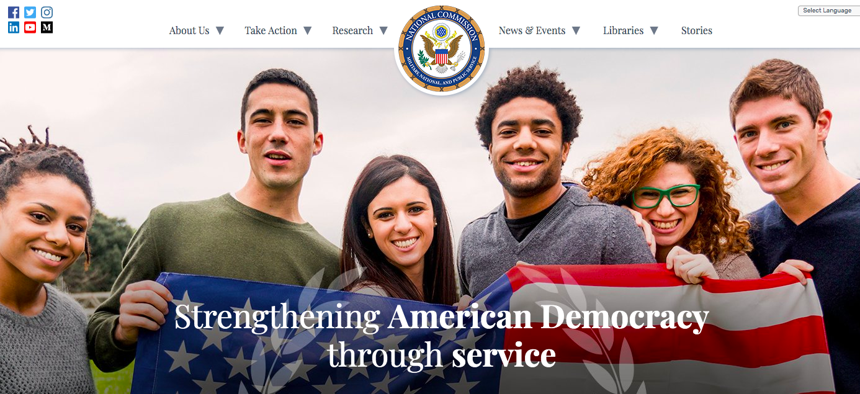
National Commission on Military, National and Public Service
What If New Employees Were Offered a Bunch of New Benefits?
But with a catch: They’d have to give up some of the current ones.
What would you think of a proposal that would offer newly hired federal civil service employees the option to choose a benefit package with fully portable retirement benefits, flexible time off, paid parental leave, and comprehensive disability insurance?
This would include a larger government contribution to the Thrift Savings Plan, paid parental leave of possibly three to four months following the birth or adoption of a child, and a disability income protection insurance benefit.
I was teaching a class of 100 midcareer federal employees this week and asked them if they liked this idea. The overwhelming majority of hands went up. Many potential employees would be thrilled to find out that these benefits were included when choosing a career in federal civilian service.
So what’s the catch? To offset the cost of the new benefits, the employee would have to trade off a defined benefit retirement and retiree health insurance. After I informed the class of this, a chorus of boos erupted.
The new benefits proposal came up for discussion at a recent hearing of the National Commission on Military, National and Public Service that addressed special workforce challenges in high-demand fields, such as cybersecurity, information technology and health care. The bipartisan, 11-member commission was created by Congress to develop recommendations to inspire more Americans—specifically young people—to participate in public service. The panel released an interim report in January. A final report is due in March 2020.
Jessica Klement, vice president for advocacy at the National Active and Retired Federal Employees Association, testified before the commission. On behalf of NARFE, she urged the panel to follow the following principles when making benefits recommendations:
- Only apply changes prospectively to future hires.
- Maintain overall compensation at an equivalent or greater value.
- Preserve income and health security for public servants in retirement.
The commission said in its summary of the hearing that “the federal employee benefits package is optimized for individuals who seek long-term federal employment careers and lacks some benefits increasingly offered by private-sector employers.”
Alternatives, the commission’s staff noted, include not only an option for a modernized set of benefits but also a “cafeteria plan.” Under this approach, government would “grant each employee a fixed agency contribution to divide among certain benefits, such as flexible spending and health savings accounts, and life, dental, vision, and disability income insurance.”
The commission will be accepting comments from the public on this and other proposals under consideration until Dec. 31. Comments can be submitted online.







